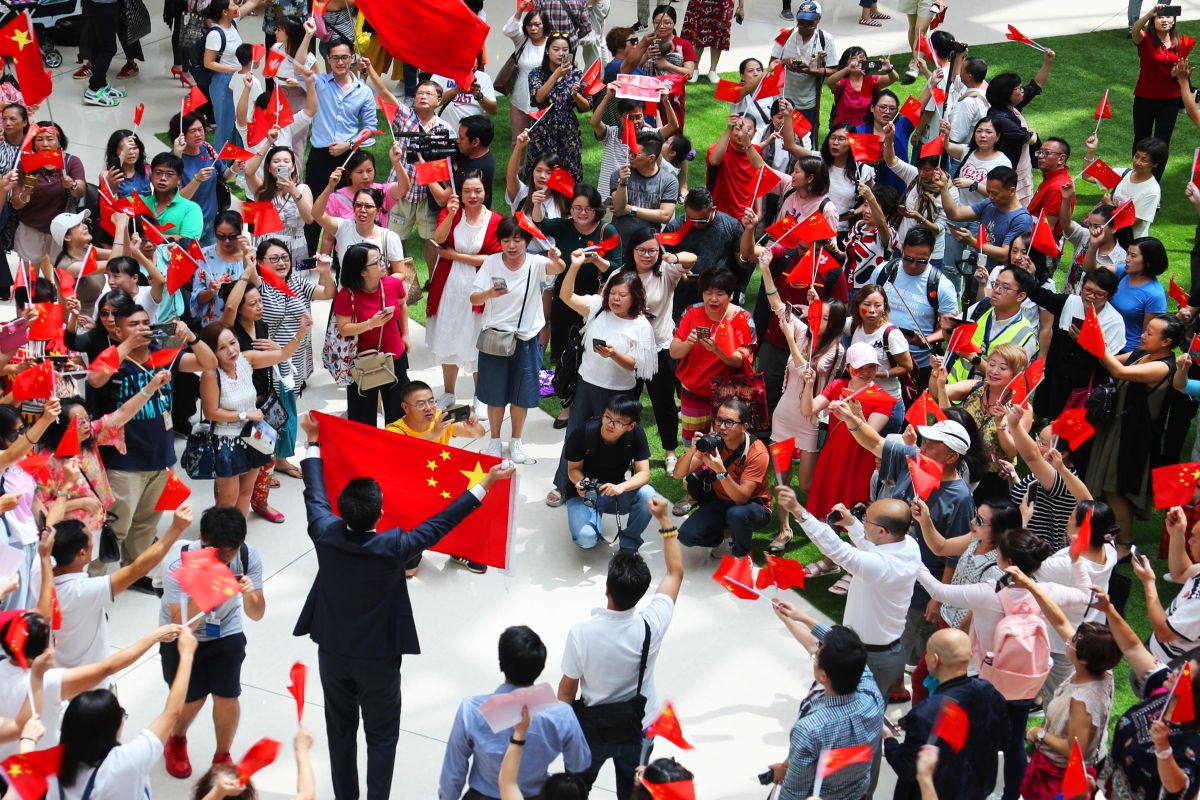Putin plays with f ire in his new doctrine
Of late Vladimir Putin has shifted Russia’s nuclear doctrine to a more directly and openly retaliatory posture in response to any attack by Ukraine or any NATO country using longer-range US missiles.
According to reports, the messages that the inciting violence against the police were circulated on these popular apps but do not specify whether violent demonstrators or infiltrators among them have been behind them.

(Photo: IANS)
Hong Kong court on Friday issued a temporary injunction to block messages, inciting violence on popular instant messaging application like Telegram and online forum LIHKG which aimed at minimizing the risk of violent clashes which have increased over the past 21 weeks of anti-government protests in the city.
High Court Judge Russell Coleman granted the injunction applied for by the city’s justice department to prevent citizens from “wilfully disseminating, circulating, publishing or republishing” any material that “promotes, encourages or incites the use or threat of violence”, Efe news reported.
According to reports, the messages that the inciting violence against the police were circulated on these popular apps but do not specify whether violent demonstrators or infiltrators among them have been behind them.
Advertisement
Hong Kong lawmaker Charles Mok said, “The temporary injunction sets an extremely dangerous precedent for introducing internet censorship of online speech similar to the Great Firewall of China” and “is a serious breach of citizens’ freedom of expression and Hong Kong’s supposed free flow of information”.
The Hong Kong protests, which have been drawing massive crowds since June following a contentious proposed extradition law, have mutated into a movement that seeks to improve the democratic mechanisms that govern Hong Kong and safeguard – or expand – the region’s partial autonomy from Beijing.
Earlier on Thursday, city’s democracy activists had gone to court to challenge an emergency law that ban protesters from wearing masks, as protesters vowed to use Halloween parties to defy the restrictions once more.
Earlier this week, the Hong Kong government banned Joshua Wong, one of the most prominent faces of the pro-democracy movement in the city, from running in the upcoming district-level elections.
The protests, which have been drawing massive crowds since June following a contentious proposed extradition law that has been pulled by the government, have mutated into a movement that seeks to improve the democratic mechanisms that govern Hong Kong and safeguard – or expand – the region’s partial autonomy from Beijing.
Last month, China was planning to replace Lam as the city’s chief executive while citing people briefed on the deliberations, which would bring to a close Lam’s rule after months of pro-democracy protests.
In 2018, the Hong Kong government had disqualified the candidacy of another pro-democracy activist, Agnes Chow, for the Legislative Council by-election in March of the same year due to her stance on advocating self-determination for the former British colony.
The controversial China extradition bill was withdrawn in early September but the movement has morphed into a wider campaign for greater democracy and against alleged police brutality.
Advertisement